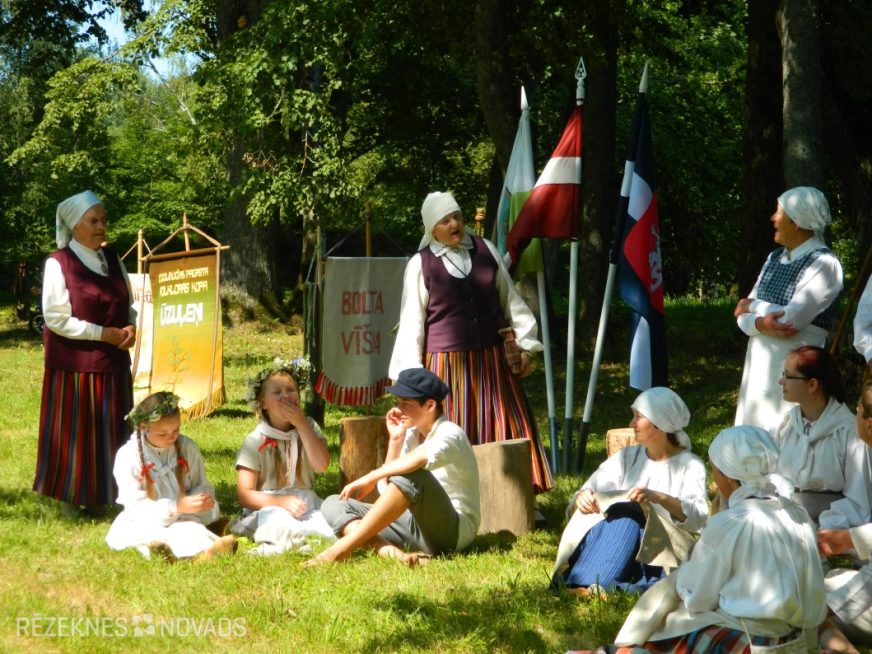Etnographic ensemble “Rikava” celebrate 60 years of anniversary

One of the oldest folklore collectors of Latvian folklore – Etnographic ensemble “Rikava” looked at sixty-thirties. There is not much self-activity in Latvia who would have worked for such long years without interruption. There has been a change in generations, and the first children and grandchildren of its members are now singing, but “Rikava” is a constant value, the gold grain of the Latvian intangible cultural heritage, polished for years.
Jānis Rozenbergs, who became the Spale of the ansambļa, was born to Rikava in the summer of 1954. “At that time we had a lot of youth, we got together, sang, Rosenberg listened to us, and said, you can't keep your wealth in the pit, where nobody can see it,” – says Janina Mitchule. MR Rozenberg, as well as the teacher, Jaseps Liepins and the head of the club, Texas Ikauniece, had been the first to have carefully cleaned and set up the small ethnographic collective seed from which a strong oak has grown in the decades. After Texas Ikauniece, he was led by Texas Teicane, whom Alexander Spundjan called an Englishman who had taught him a sense of folklore. The celebrations AT Rikavas in a cultural house with enormous respect mention all the former leaders and participants who are now in the gardens of eternity. But before that, the Rikaviets, as usual, encouraged their spectators with a new performance in “Sean Tolka Rikava”, in which not only sang, danced, and beliefs about the time of the hay, but they also made their own chuckles with ditches, picking up a pile of scented hay. In the talks, further friends were invited – folklore collectively from Viļānu, Dagda, Carsava and Baltinava, as well as sabres from Dricāniem, Ozolmuižas, Kaunatas and Rogovka.
Etnographic ensemble “Rikava” has been working hard for many years with the genre of ethnographic performances, thanks to them, the spectators have been able to observe both ancient positions and how the family honors have been celebrated in Latgale. The family is the value of the largest ensemble, and the collective currently operates four generations.
In the 60-year anniversary, the Chairman OF the Rēzekne municipality council, Monvīds Švarcs and Rikavas parish management, on the contribution to the identification and promotion of national specificity, Etnographic ensemble “Rikava” received the recognition of the Latvian Ministry of Culture, as well as the gratitude of the Latvian National Cultural Centre (LNKC). Thanks articles from LNKC were also received by the current collective manager Aija Dundure, as well as Janina Mitchule and Leo Spale.
LNKC folklore expert Gita Lanzer said the positive words regarding the performance of the ethnographic ensemble “Rikava”, including the fact that the sparkling, funny, good Latgalian-language performances could be securely adjacent to the Latvian national theatre of the Latvian national theatre “Latgola.lv”.
At the end of the event, the symbolic symbolic puzzle of the ethnographic collective, Janina Michule's songs, took place in the large, bitter handkerchief of the Spalevo of Texas Spalevo, and the canopy's long-term member Vitolda Mitchuel's road cane, as a symbol for the long roads that still have to be taken by the Rikaviets, confirming their latgalical latency, the non-exhaustive richness of their people's spirit.
Anna Rancāne
Autores photo
Photo Gallery